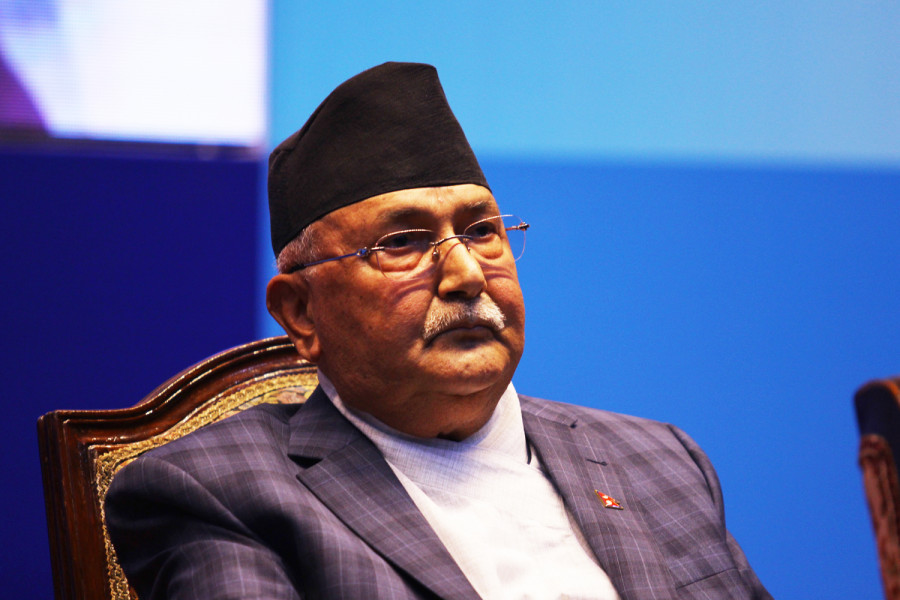Editorial
Triumph of the constitution
Prime Minister KP Sharma Oli must step down on moral grounds.
The Constitution of Nepal has finally prevailed after two months of uncertainty. The Supreme Court, in a landmark verdict on Tuesday, overturned Prime Minister KP Sharma Oli’s December 20 decision to dissolve the House of Representatives. The Constitutional Bench led by Cholendra Shumsher Rana, with Justices Sapana Pradhan Malla, Anil Kumar Sinha, Bishowambhar Prasad Shrestha and Tej Bahadur KC as members, unanimously agreed that Oli’s House dissolution move was unconstitutional. The bench has ordered the government to call a House meeting within 13 days. As many as 13 writ petitions were filed against Oli’s House dissolution move, which was swiftly endorsed by President Bidya Devi Bhandari.
In its verdict, the bench has said that since there still is a possibility of the formation of a new government under Article 76 (7), Oli’s House dissolution move was unconstitutional. Oli had cited Articles 85, 76 (1) and 76 (7) to dissolve the House. Oli had also argued that he was forced to dissolve the House because his opponents, especially Pushpa Kamal Dahal and Madhav Kumar Nepal, did not allow him to work. He had further claimed that the country needed a two-thirds majority government, hence he wanted to seek a fresh mandate from the people.
A lot of words have been spent over the past two months analysing why the House dissolution move was wrong. But since the case was being heard by the Supreme Court, the entire country was waiting with bated breath. By passing a judgment in favour of the constitution, the Supreme Court on Tuesday once again stood by the people, and re-established the notion of an independent judiciary. Immediately after Oli’s House dissolution move, this paper in this very space had argued that the prime minister had taken an unconstitutional step, and hoped that the judiciary would rise to the occasion and rectify the mistake committed by the executive.
The bench has, as we had argued and expected, once again proved that the people can put their trust in the country’s judiciary and the competence of honourable justices. Now that the House has been reinstated, politics will return to Parliament. But the problems are not over yet. There are too many players in the House with no one controlling a majority, and the risk of the dirty game of horse trading could start any time soon. We hope Nepal’s political leaders, who are well aware of the cost the country has to pay because of instability, will try to show some prudence and play a constructive role to ensure stability and work within the constitutional, democratic and legal framework.
As far as Oli is considered, his move was unconstitutional from the outset. Now that the top court of the country has called his move unauthorised, Oli must step down on moral grounds. Arguments and counter-arguments can be made about whether President Bhandari should have endorsed the Oli government’s House dissolution or not. But because of the constitutional position Bhandari holds, it was incumbent upon her to at least consult with experts, and take some time on the constitutionality of Oli’s move before exhibiting the promptitude in playing along with the executive. The president must bear in mind that despite holding the highest position in the country, she is still accountable to the constitution and answerable to the people, not the party that installed her in Sheetal Niwas.
The constitution as well as federalism, secularism and republican set-up are hard-earned gains of the Nepali people. Lest anyone forget, the constitution vests the sovereignty and state authority in the Nepali people. Whoever tries to assault the constitution and betray the people will have to pay a price.




 17.12°C Kathmandu
17.12°C Kathmandu














